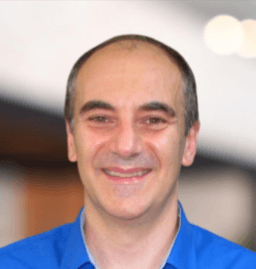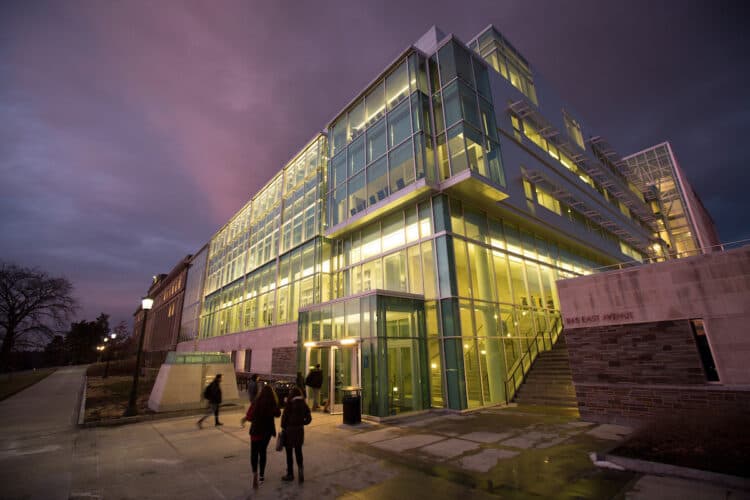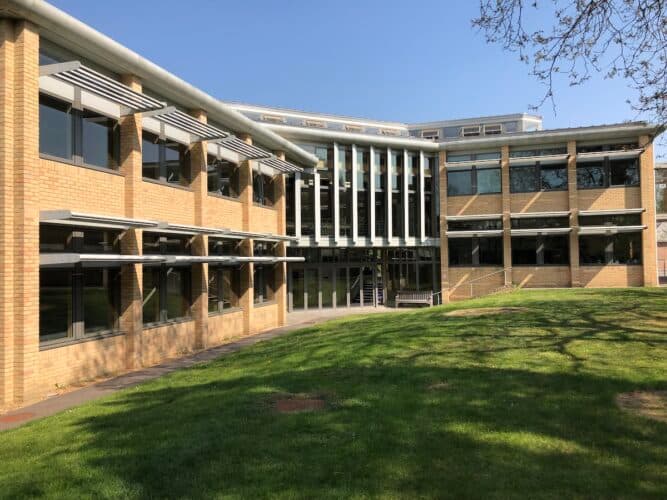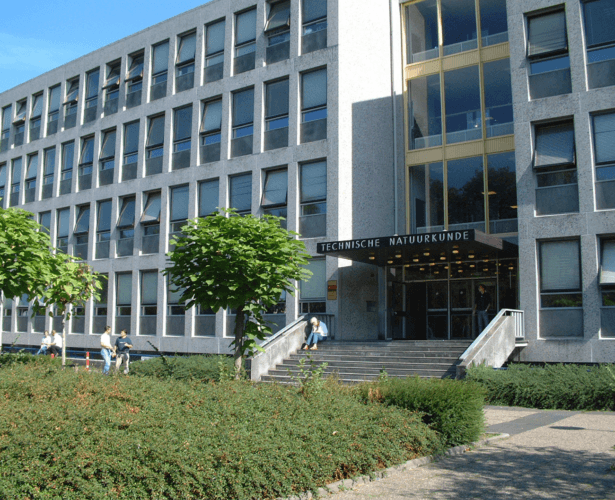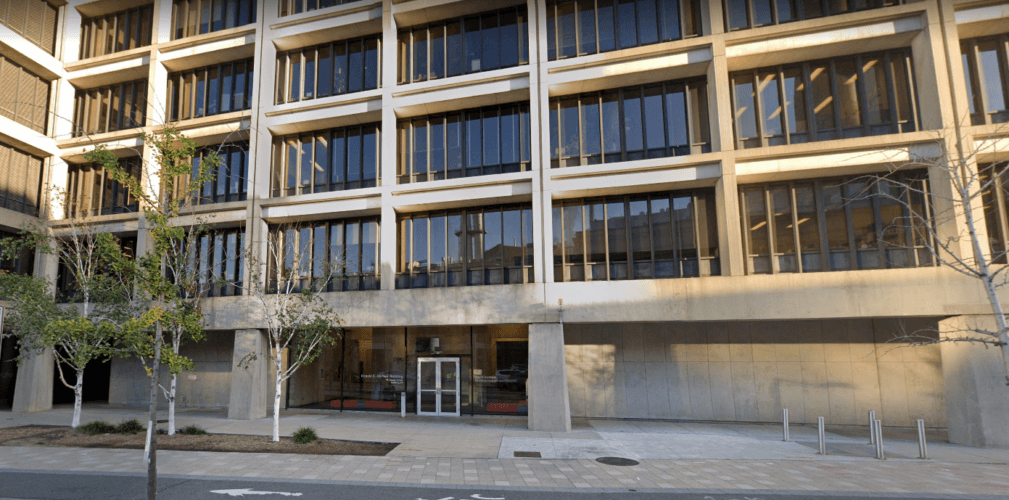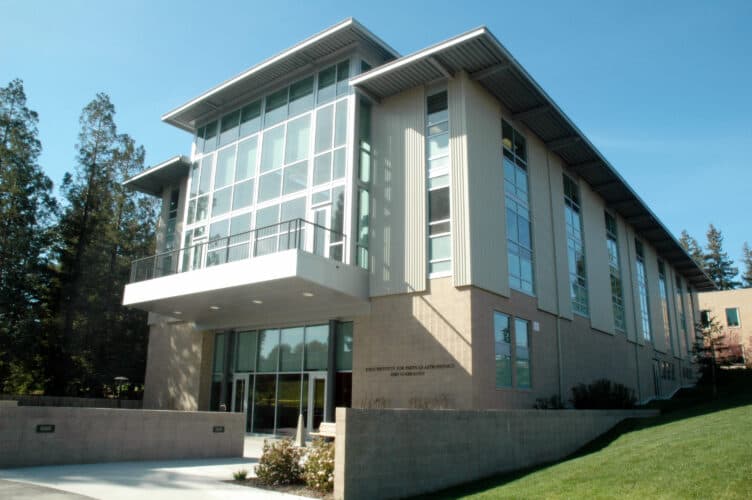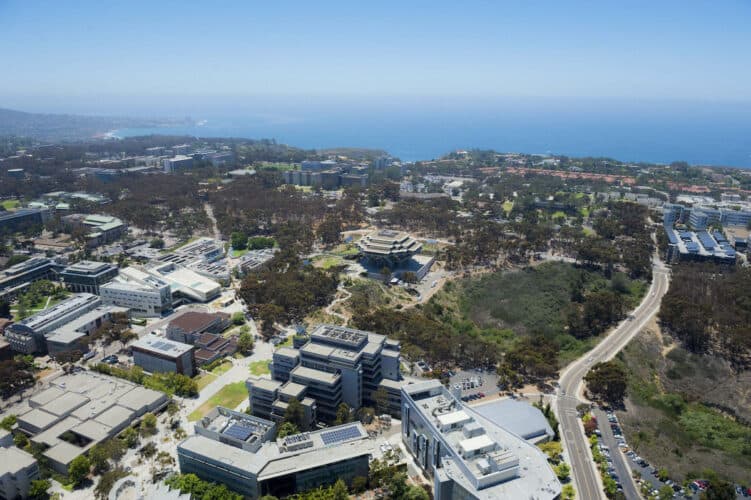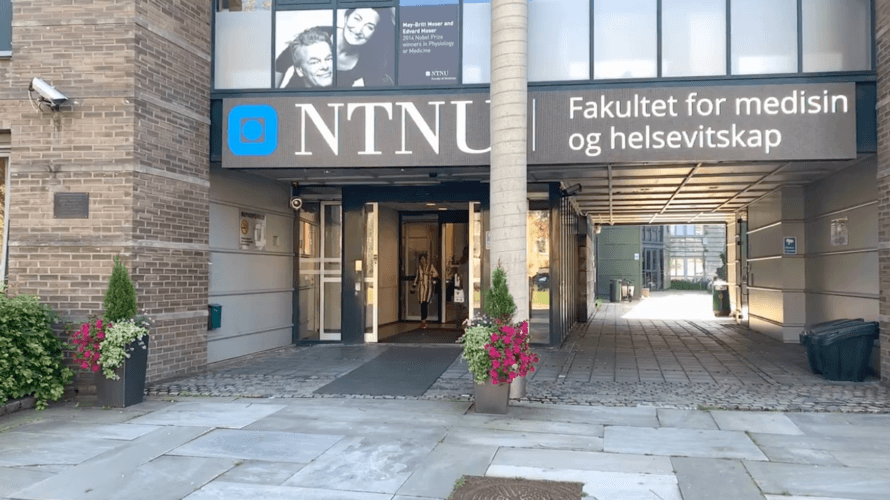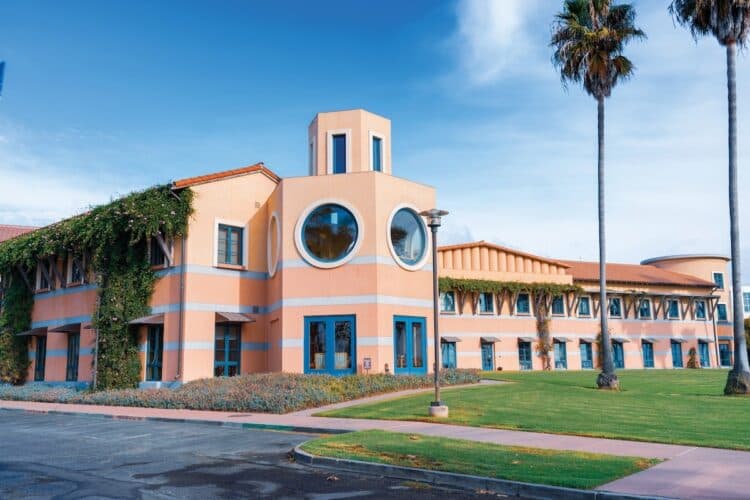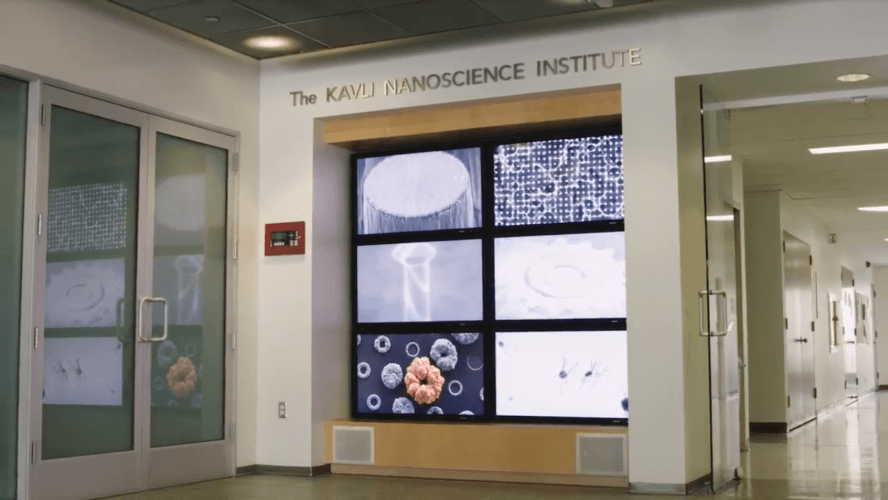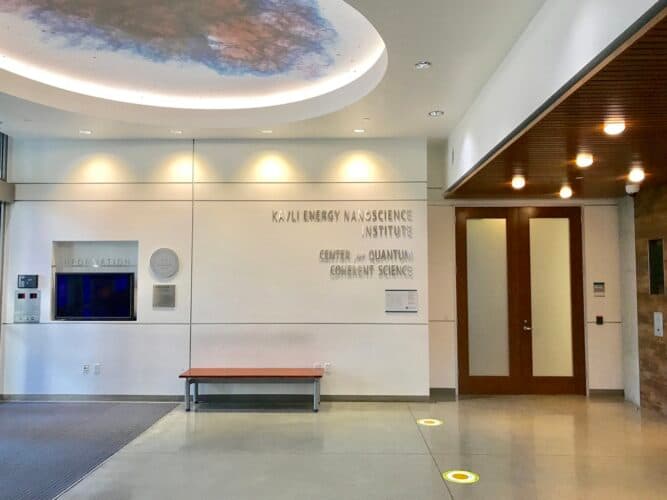
University of OxfordKavli Institute for NanoScience Discovery
Combining structural biology with world-leading biochemistry, pathology, chemistry, physics, physiology and engineering
With a new building at the center of the science area of Oxford, the Kavli Institute for NanoScience Discovery (Kavli INSD) will house more than 40 faculty and 400 students, postdocs and research staff.
FOUNDED 2020
Leadership
AREAS OF INQUIRY
- MECHANISMS OF INFECTIOUS DISEASE PROPAGATION: No world event is more pertinent than that of the current COVID-19 pandemic. To tackle this in new ways, researchers from all disciplines have pulled together to assemble work streams from the physical tracking of particles on DNA surfaces through to the analysis of the "sugar coatings" that protect both the virus spike and receptors that accept these viruses into cells.
- ANTI-MICROBIAL RESISTANCE MECHANISMS: From the physics underlying the movement of bacteria through to the formation of the biofilms that cover bone, members of the Institute have begun to uncover novel mechanisms of bacterial infection to search for new antibiotic targets and to uncover novel anti-microbial agents.
- STRUCTURE TO INFORM ANTI-MALARIA TREATMENTS: Malaria is a killer that targets children and pregnant women such that parents in sub-Saharan Africa live each day with the fear that their child might succumb to Plasmodium falciparum malaria. Since the early 1900s, scientists have attempted to produce a malaria vaccine. However, decades of research culminated in a series of vaccine trials that failed to show any activity. Research in this area has recently been revitalized, however, by the finding that a particular protein that binds to a receptor on red blood cells induces potent antibodies. Now using structural analysis of antigen–antibody complexes to identify functional and non-functional epitopes, members of the Institute are working towards rational design of improved vaccines using molecular structures to guide their research.
- NEW INSTRUMENTATION FOR NANOSCIENCE DISCOVERY: From monitoring the interactions of single molecules by light through to the complex polymerases that orchestrate replication in our cells, the Institute will develop and apply new instrumentation and ways to understand communication pathways in healthy and diseased states.

Elements of Discovery
More Institutes
At Kavli Institutes around the world, scientists explore the frontiers of science in the fields of astrophysics, nanoscience, neuroscience and theoretical physics.
see all institutesCornell University
University of Tokyo
Neuroscience
Johns Hopkins University
Astrophysics
University of Chicago
Astrophysics
University of Cambridge
Nanoscience
Delft University of Technology, Netherlands
Massachusetts Institute of Technology
Theoretical Physics
University of Chinese Academy of Sciences
Stanford University
Neuroscience
Rockefeller University
Neuroscience
University of California, San Diego, and the Salk Institute for Biological Studies
Neuroscience
Yale University
Neuroscience
Norwegian University of Science and Technology
Astrophysics
Peking University-Beijing
Neuroscience
Columbia University
Neuroscience
University of California, San Francisco
Theoretical Physics
University of California, Santa Barbara
Nanoscience
California Institute of Technology
Nanoscience
University of California, Berkeley

